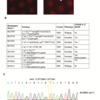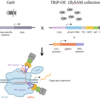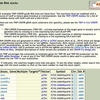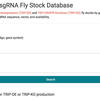in vivo fly CRISPR
. 4/4/2019. “TRiP stocks contain a previously uncharacterized loss-of-function sevenless allele.” microPublication Biology. Publisher's Version
Micropublication relevant to TRiP fly stocks
2018
Jun
18
2018
May
19
Missed us at ADRC 2018? View our workshop slides!
2018
Apr
13
. 10/9/2017. “Accessing the Phenotype Gap: Enabling Systematic Investigation of Paralog Functional Complexity with CRISPR.” Dev Cell, 43, 1, Pp. 6-9.Abstract
TRiP-CRISPR stocks now available at BDSC
The TRiP is now taking nominations for CRISPR stocks
CRISPR sgRNA design tool now based on Drosophila genome assembly 6
2017
May
10
. 10/31/2016. “Loss-of-function genetic tools for animal models: cross-species and cross-platform differences.” Nat Rev Genet. Publisher's VersionAbstract
2017
Mar
29
. 9/23/2016. “Drosophila research resources at the DRSC and TRiP.” Presentation to the Boston Area Drosophila Meeting (Sept. 2016).
2016
Sep
23




